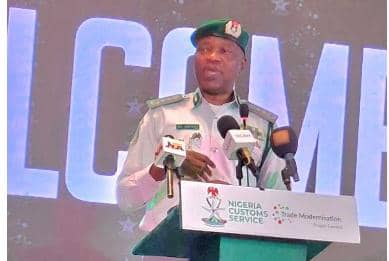
The Nigeria Customs Service (NCS) on Monday in Lagos announced plans by the Federal Government to reduce cost of importation with the scrapping of 7 percent surcharge and 1 percent Comprehensive Import Supervision Scheme (CISS).
According to the
Comptroller General of Nigeria Customs Service, Adewale Adeniyi, the service is to begin implementation of a 4 per cent Free On Board (FOB) levy on all importation.
Speaking in Lagos at a meeting with Stakeholders on the implementation of the Unified Customs Management System also known as B’Odogwu, Adeniyi said quality Information Communication Technology (ICT) is capital intensive and never comes cheap anywhere in the world.
The CGC explained that the 4 per cent FOB levy — calculated based on the value of imported goods up to the port of loading — will serve as a replacement for both the 1 per cent CISS fee and the 7 per cent federation account collection, enabling a more efficient, transparent, and technology-driven clearance process.
The Customs Boss said:
”We have no choice in the payment of the 4 per cent FOB because it is needed by the Customs to fund the huge technology and modernisation programme it has embarked upon.
“The 4 per cent is not a new thing. God bless the soul of the late President Muhammadu Buhari, who saw the need for extra funding before the provision was included in the Customs Act of 2023.
“When we introduced this levy some months ago, we were asked to hold on and consult with our stakeholders.
“I am now telling you that we have no choice but to introduce the levy because technology does not come cheap, and in Yoruba parlance ‘the soup that is sweet is as a result of money,” he said.
He further added that now that he is the Chairman of the WCO Council, the Nigeria Customs would use B’Odogwu to show the world that the Service has the capacity and competence to develop its own indigenous technology that will enhance its operations.
‘’ Now that we have the WCO Council Chairmanship with us, let’s use the opportunity to sell B’Odogwu to the world and tell them that we have the capacity and competence to develop our own technology to enhance our operations and facilitate trade,” he said.





